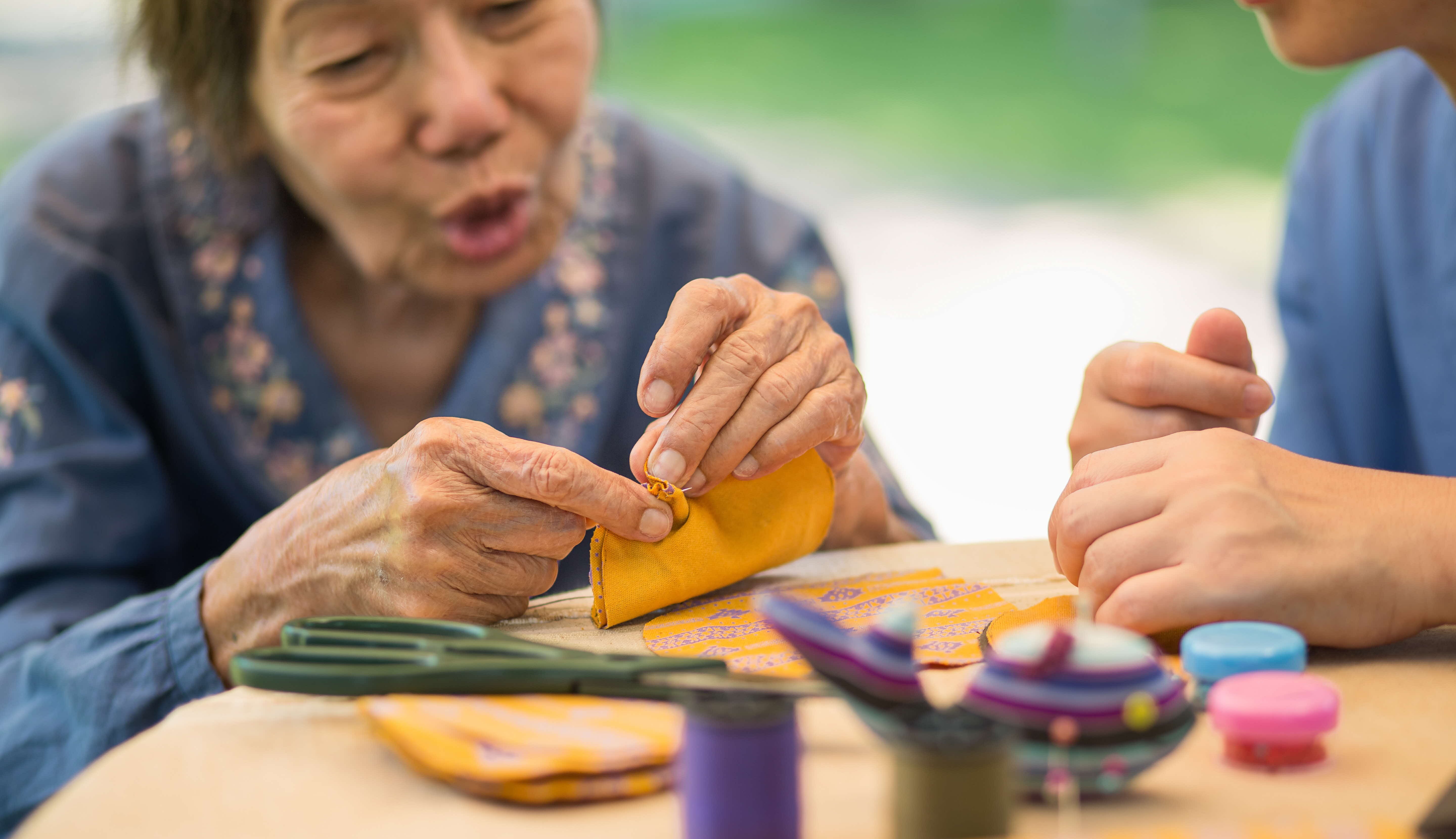Test header
Key Areas of Support
Recognition and Support for Caregivers
Caregivers are the cornerstones of our families, and caregiving becomes a more significant responsibility as the Singapore society faces an aging population. While more men have stepped up to assume caregiving duties, there are still discrepancies in gender roles at home, with women shouldering a disproportionate share of the caregiving load.
| Through the Caregiver Support Action Plan launched in 2019, the Government has rolled out a suite of measures to support caregivers, through respite care, easing financial strain and networking. | .png?sfvrsn=9e5d15af_0) |
 | Moreover, Age Well Singapore, launched in 2023, supports seniors to age actively and independently by weaving together social and health services in local communities around seniors, to proactively care for their needs and pre-empt social isolation and decline. |
80% of preschoolers can have a place in government-supported preschools by the end of 2025.
All families with Singaporean children enrolled in infant care and childcare programmes receive a universal Basic Subsidy, with eligible families receiving the means-tested Additional Subsidy. Full-day childcare fee caps at government supported preschools have been reduced in 2025. From Jan 2026, these fee caps will be further reduced to $610 for Anchor Operator centres and $650 for Partner Operator centres. With this 2026 fee cap reduction, full-day childcare expenses, before means-tested subsidies, will be similar to what households pay for primary school and after school care fees combined.
Find out more about the subsidy schemes here.
The Enabling Services Hubs (ESHs) (ESHs) work with community partners to reach out to persons with disabilities and their caregivers, and deliver community-based activities and programmes. Two more ESHs will be operational in 2025, bringing the total number of ESHs to three.
Under the Enabling Masterplan 2030, SG Enable has worked with MINDS to enhance MINDS’ launched the MINDS’ launched the FutureReady portal website, which provides helpful resources to guide caregivers in developing and putting in place future care plans for their loved ones with disabilities.
SG Enable's 'Take-A-Break' (TAB) home-based respite programme home-based respite programme, launched in July 2020, resumed in April 2024. The programme offers short-term home-based respite services to families.
The Home Caregiving Grant (HCG) (HCG) will be enhanced from April 2026 to alleviate caregiving expenses of persons who require assistance with their Activities of Daily Living. Caregivers of seniors and persons with disabilities can also look forward to enhanced subsidies for long-term care services in 2026, with more eligible for such subsidies with the raise in maximum qualifying per capita household income to $4,800.
Support begins during pregnancy at KidSTART partner hospitals. After the child is born, a KidSTART practitioner will work with parents through home visits to equip them with child development knowledge and skills. This support will continue until their child turns 6.
The programme aims to support 80% of eligible children born from 2023 by the time they turn 6. As of April 2025, KidSTART has expanded nationwide, making its services accessible to all eligible families.
In 2019, MOH launched the Home Caregiving Grant (HCG) (HCG), providing monthly cash grant of $200 to defray caregiving costs for eligible persons with at least permanent moderate disability in the community. MOH has enhanced the HCG in March 2023, with more targeted support provided to lower-income families caring for loved ones with at least permanent moderate disability.
In 2026, the HCG will be further increased to up to $600 per month to further defray caregiving costs in the community. The maximum qualifying per capita household income threshold will also be increased from $3600 to $4800 so that more caregivers can receive support.
The Caregivers Training Grant provides an annual subsidy of up to $400 that enables eligible caregivers to attend approved courses to better care for their loved ones.
Sign up for caregiving courses to learn how to better help your loved ones with their daily care.
To help all Singaporeans, including caregivers, build sufficient savings for retirement, the Government has been progressively enhancing the Central Provident Fund (CPF) system and other support measures over the years.
Caregivers who are seniors may build up their retirement savings through the raised senior worker CPF contribution rates for those aged 55-70 since 2022. Caregivers may also be eligible for further support under the Majulah Package introduced in 2024, and the Workfare Income Supplement Scheme, Silver Support Scheme, Matched Retirement Savings Scheme and Retirement Sum Topping-Up Scheme which were enhanced over the years.